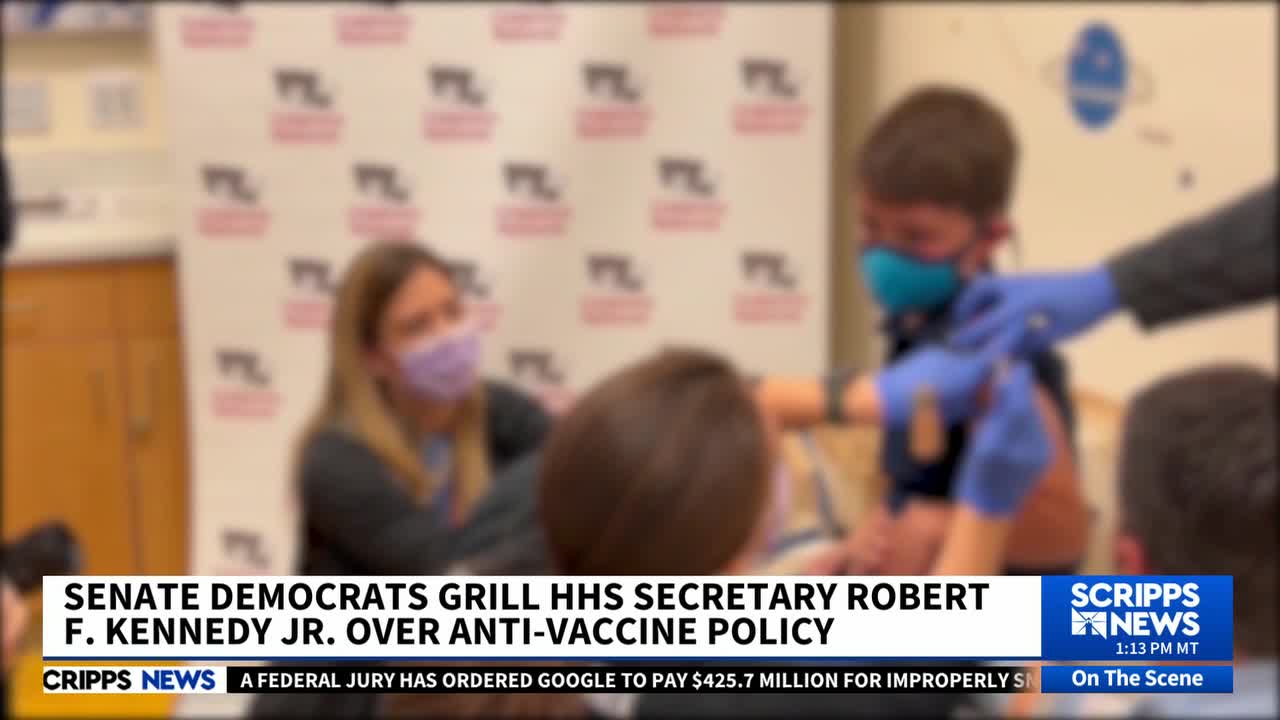Vaccine policy in the United States is diverging sharply as states either pull back from federal guidance or move to reinforce their own.
Western states form coalition against CDC guidelines
On Wednesday, California, Oregon and Washington announced the formation of the Western Alliance to address what its leaders said were gaps in “credible information” from the Trump administration and the U.S. Centers for Disease Control and Prevention (CDC). Hawaii joined the alliance Thursday.
The coalition said its goal is to combat the spread of politically driven guidance and reaffirm science-based recommendations.
The Western Alliance warned in a statement of “severe consequences if the CDC becomes a political tool that increasingly pedals ideology instead of science.” The group plans to release updated vaccine guidance in the coming weeks, informed by national medical organizations.
Health and Human Services (HHS) spokesperson Andrew Nixon pushed back in a statement to Scripps News, contending that Democrat-led state policies during the COVID-19 pandemic — including mask mandates and school closures — eroded trust in public health agencies. Washington Sen. Maria Cantwell criticized HHS Secretary Robert F. Kennedy Jr. in a Thursday hearing, accusing him of undermining public health.
ADDITIONAL REPORTING | HHS Secretary Kennedy tells senators fired CDC director was lying about vaccine claims
"You're not putting solutions on the table to cover more Americans and you're taking away the science and technology that has made us the leader that has saved — according to the first Trump administration surgeon general — millions of lives, and you don't want to keep that going," Cantwell said. "... If you want the Northwest to just continue to lead on all innovation and all healthy people, okay, we'll do that. But it's a sad statement for the rest of America and America's leadership on technology."
Northeast states build regional vaccine plan
Massachusetts Gov. Maura Healey said Thursday she is also working with other regional leaders to create a New England and Northeast coalition to set vaccine policy.
The plan would rely on recommendations from the Massachusetts Public Health Commission, which insurers in the state will follow in determining vaccine coverage.
Healey said the goal is to ensure cost does not become a barrier to care, saying nobody in her state should face issues accessing medication or vaccines needed to stay healthy.
IN CASE YOU MISSED IT | Updated COVID vaccines unavailable in parts of US as CDC delays approval
“This is about public health, and this is about our responsibility as states and those of us privileged to serve to make sure that we're doing right by people,” Gov. Healy said during Thursday’s press conference. “It's a pretty sad statement that we can no longer trust the federal government on this, but sadly, that's where we're at.”
The coalition models are reminiscent of early pandemic actions, when states created their own frameworks in the absence of uniform federal strategy.
Florida moves to end all childhood vaccine mandates
Meanwhile, officials in Florida are moving in the opposite direction.
On Wednesday, Florida Surgeon General Dr. Joseph Ladapo announced the state will work to end all vaccine mandates in Florida law, comparing childhood vaccine requirements to slavery.
"The Florida Department of Health, in partnership with the governor, it's going to be working to end all vaccine mandates in Florida law — all of them, all of them," Ladapo said. "... Your body is a gift from God. What you put into your body is because of your relationship with your body and your God. I don't have that right. Government does not have that right."
ADDITIONAL REPORTING | Florida will work to eliminate all childhood vaccine mandates in the state, officials say
Supporters at the announcement cheered, but polling shows most Americans — and most Floridians — disagree. A Washington Post-KFF survey found 81% of parents nationwide and 82% of Floridians support measles and polio vaccine requirements for public school students, with some exceptions.
Public health experts warn that rolling back these requirements could weaken herd immunity for diseases like measles, polio and pneumonia, potentially leading to outbreaks that spread across state lines and threaten vulnerable populations.
It remains unclear whether more states will follow Florida’s lead or align with coalitions like the Western and Northeast alliances.












